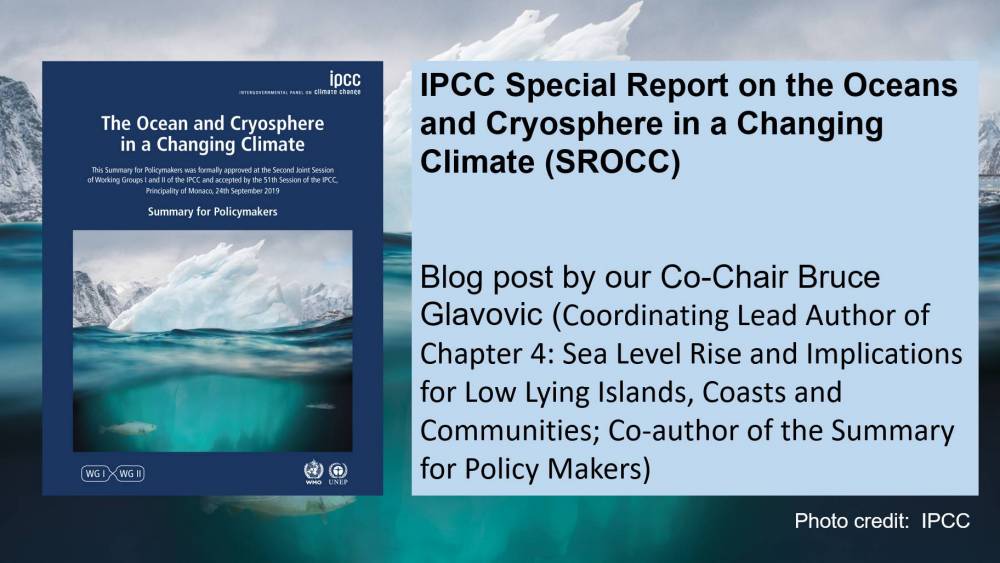The IPCC Special Report on the Oceans and Cryosphere in a Changing Climate (SROCC) (https://www.ipcc.ch/srocc/home/), recently approved by 195 IPCC member governments, is yet another clarion call to humanity to take seriously the imperative to chart more climate resilient development pathways.
This time the IPCC focuses on the life-sustaining oceans and cryosphere that define this Blue Planet, complementing recent Special Reports on 1.5C (https://www.ipcc.ch/sr15/) and Land (https://www.ipcc.ch/report/srccl/).
This SROCC report shows that the ocean has been absorbing CO2 and ameliorating the worst effects of global warming.
But the ocean warming and acidification already underway is causing significant impacts on ocean- and coast-dependent livelihoods and profoundly impacts prospects for human well-being and life on earth.
The IPCC scientific assessment is unequivocal: human-induced climate change is already driving major changes in the ocean and cryosphere, two of the ‘biggest’ biogeochemical systems on earth. Climate change is not some distant problem for future generations to worry about. It is an immediate imperative relevant to every citizen, policy-maker, community and governing authority.
The choices we make now will shape patterns and pathways of development that determine the extent and nature of further changes to these foundational systems; and consequently life on earth.
For the significant proportion of humanity living along our shorelines, one of the greatest challenges is the reality of sea-level rise that is already underway and accelerating. Again, this is not some distant concern but an immediate and pressing reality. Continuous and unstoppable sea-level rise imperils those living on low-lying small island states, deltas and shorelines.
Moreover, extreme sea level events that are historically rare, occurring perhaps only once every 100 years in the recent past, are now expected to occur often, at least once a year, in many coastal locations by 2050.
Despite the dire implications and warnings expounded in this IPCC Special Report, it concludes with a clear and compelling message: “Enabling climate resilience and sustainable development depends critically on urgent and ambitious emissions reductions coupled with coordinated, sustained and increasingly ambitious adaptation actions (very high confidence).”
The recently declared UN Decade of the Oceans (2021-2030) (https://www.oceandecade.org/) is timely. The choices made in the coming decade by our ocean- and coast-dependent communities will shape prospects for future generations and indeed life on earth.

